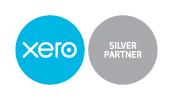But how much will an all-in-one system cost your business? There are huge variations in HR software costs, and it all depends on what your business needs.
A good way to zero in on what matters most is to ask yourself a few pertinent questions. Here’s a few to get you started:
- How is the pricing based?
Conducting an HR software cost comparison based on pricing alone is difficult because not all HR software is priced in the same way. With SaaS HR software, rather than buying a one-time licence and housing an HR system onsite, you typically pay a subscription fee (per month or per year) in order to use the software. This means you don’t have to fund a major software investment up-front.
Common forms of pricing include per-employee subscriptions, plan-based subscriptions, and freemium models. Each of these models is usually based on the number of people that the business employs.
With a per employee-based structure, you pay a fee for each employee in your business. This pricing structure can be highly beneficial for smaller businesses as you have full access to all the HR functionality – but because of your size, it’s highly affordable, and it gives you the flexibility to scale as your business grows.
In the case of the plan-based pricing, you pay a set monthly subscription fee which remains the same until you go over the employee threshold set within your plan. The tools and functionality provided for a company on a 20 employee plan are generally more limited than those provided to a company on a plan for more than 100 employees.
Freemium models allow you to access core HR functionality free of charge, with limited features. The idea is you’ll get a taste of what it can do, start to rely on it, and upgrade to a paid plan once you’ve seen the value.
- Does it integrate with other software / is it an all-in-one solution?
All-in-one HR solutions include a full suite of HR management tools, so that you aren’t stuck with multiple systems that don’t talk to each other, forcing you to waste time on double data entry. For example, if your HR system doesn’t talk to your payroll system, you’ll have to key in the data twice – wasting your precious time and leaving room for human error.
So it’s important that the software you choose is interoperable, meaning it integrates seamlessly with your other business software to enable whole of business reporting. Instead of having multiple standalone databases, you want to be sure that information is consistent across your business systems.
- Are features constantly being added so that you pay the same but get more for no extra cost?
HR software, like every other piece of technology, is continually evolving. So, it’s important to choose a vendor that has a well-defined roadmap so that the platform’s features are regularly enhanced, at no additional cost.
- How much is YOUR time worth? What’s the ROI and value to the business?
A new HR system will help you maximize your time at work by eliminating all of the unnecessary admin tasks that come with manual HR and payroll management. This frees up your time to make more strategic decisions.
In terms of ROI, with subscription-based monthly pricing, and no capital outlay, time to value is immediate. You’ll be vastly more productive and efficient, and have time for more strategic thinking from the get-go.

